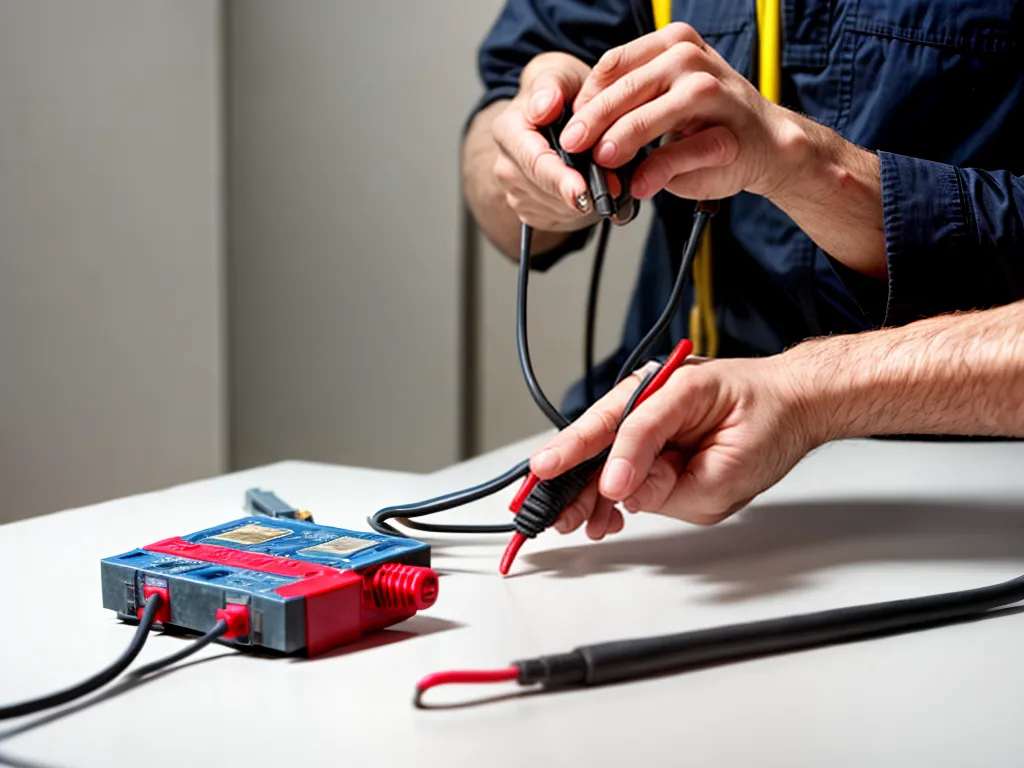
How to Troubleshoot Weird Electrical Problems in Your Business
Electrical issues can be frustrating and disruptive for any business. As a business owner, it's important to understand some basics about electrical systems so you can identify and resolve odd electrical problems when they pop up. With some diligent troubleshooting, you can often track down the source of bizarre electrical gremlins.
Inspect Your Electrical Panel
The electrical panel, or breaker box, is the central nervous system of your building's electrical system. It's a good place to start your investigation when appliances are malfunctioning or lights are flickering for no apparent reason.
Check for Tripped Breakers
The most obvious thing to check is if any circuit breakers have tripped. Circuit breakers are designed to trip and cut power when there is an overload or short circuit in the wiring. Reset any tripped breakers to see if that resolves the issue.
Look for Signs of Overheating
Inspect your electrical panel for any discolored/melted wires, burnt smells, or hot spots around outlets. Overheating can indicate potentially dangerous wiring issues like loose connections, undersized wires, or excessive current draw. If you find signs of overheating, consult an electrician immediately.
Verify Grounding and Bonding
Faulty grounding and bonding can lead to abnormal electrical behavior and safety hazards. Check that your panel has a proper ground wire connection. The neutral and ground bus bars should also be bonded together securely.
Check Individual Circuits and Wiring
If the main electrical panel looks okay, the next step is to systematically check the circuits and wiring running throughout the building.
Inspect Connections
Loose electrical connections are one of the most common causes of intermittent electrical issues. Check outlet boxes and junction points for loose wire connections and secure any you find with the proper size wire nuts or connectors.
Test Voltage Levels
A multimeter is a useful tool for checking voltage levels on circuits to identify any wiring faults. Normal voltage should be between 110-120V. Low voltage can cause equipment to malfunction. High voltage can damage electronics and appliances.
Look for Damage
Keep an eye out for any damaged or deteriorated wiring. Look for cracked wire insulation, exposed copper conductors, damaged junction boxes, loose connections, etc. Damaged wiring can lead to shorts, fires, or shock hazards.
Listen for Arcing
Electrical arcing - a buzzing, crackling, or sizzling from switches or outlets - indicates a serious hazard. Arcing is caused by gaps in wiring connections. Have an electrician trace and repair the faulty wiring immediately.
Troubleshoot Specific Devices and Appliances
For electrical issues limited to a specific device or appliance, focus troubleshooting efforts on that equipment.
Check for Tripped GFCIs
GFCI (ground fault circuit interrupter) outlets have built-in breakers that trip when they detect abnormal current flow. Reset any tripped GFCI outlets. If it trips again, the device itself likely has a ground fault.
Inspect Cords and Plugs
Frayed or damaged power cords are very dangerous. Replace any worn or damaged cords. Also check that appliance plugs are fully inserted into outlets. Loose plugs can cause arcing and heating.
Test with Different Outlets
Try plugging the malfunctioning appliance into a different outlet to see if the issue follows the device or stays in the original outlet. This can help identify wiring problems versus appliance issues.
Consider Voltage Needs
Undervoltage can cause appliances to struggle or shut down. If an appliance shares an outlet with other high-draw devices, the combined load may be overtaxing the circuit. Try plugging the appliance into its own dedicated outlet.
When to Call an Electrician
While basic troubleshooting can resolve many minor electrical issues, it's best to call a licensed electrician for any of the following:
- Signs of overheating or melted wires
- Exposed, damaged, or frayed wiring
- Electrical arcing sounds from outlets
- Voltage readings outside of normal 110V-120V range
- Repeated tripping of GFCIs or breakers
- New circuit breakers immediately trip after being reset
- Any hazard that's beyond your comfort level to resolve
Electrical problems affect critical business equipment and can become fire risks if left unaddressed. Professional electricians have the tools and knowledge to accurately assess electrical issues and make needed repairs. They can ensure your building's electrical system complies with all current codes and standards. Don't take chances when it comes to electricity - call in experts when needed.